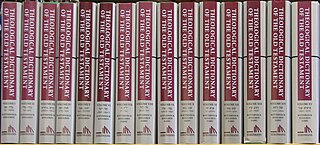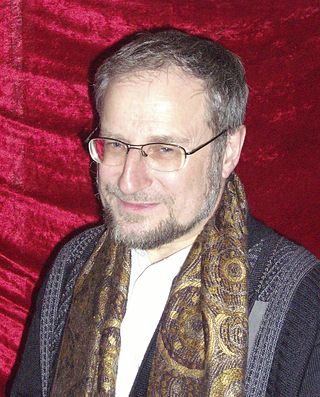Related Research Articles
Ram Swarup, born Ram Swarup Agarwal, was an Indian author and one of the most important thought leaders of the Hindu revivalist movement.
Károly Kerényi was a Hungarian scholar in classical philology and one of the founders of modern studies of Greek mythology.

The Rössen culture or Roessen culture is a Central European culture of the middle Neolithic.
Joachim Ernst Adolphe Felix Wach was a German religious scholar from Chemnitz, who emphasized a distinction between the Religious Studies (Religionswissenschaft) and the philosophy of religion.
Anncharlott Eschmann was a scholar of religion.

Wolfgang Kraushaar is a political scientist and historian. After a residency at the Hamburger Institut für Sozialforschung from the 1980s until 2015. In 2015 he continued his research at the Hamburg Foundation for the Promotion of Science and Culture also in Hamburg, Germany.
Otto Huth was a German historian of religion and folklorist who was a member of the Ahnenerbe and held a professorial position at the Nazi Reichsuniversität Straßburg.
Eckhard Jesse is a German political scientist. Born in Wurzen, Saxony, he held the chair for "political systems and political institutions" at the Technical University of Chemnitz from 1993 to 2014. Jesse is one of the best known German political scholars in the field of extremism and terrorism studies. He has also specialized in the study of German political parties and the German political system.
Walter Friedrich Gustav Hermann Otto was a German classical philologist particularly known for his work on the meaning and legacy of Greek religion and mythology, especially as represented in his seminal 1929 work The Homeric Gods.

Hartmut Zinser is a German scholar in the field of religious studies, history of religions, and ethnology.
Lambert Schmithausen is a retired professor of Buddhist Studies, having served in positions at the University of Münster and the University of Hamburg (Germany). He is one of the leading academics in the field.
Bernhard Maier is a German professor of religious studies, who publishes mainly on Celtic culture and religion.
Gerhard Stahl is since August 2014 Professor at the Peking University HSBC Business School in Shenzhen in China. In addition he teaches as visiting professor at the College of Europe. Until April 2014 he was an EU Official, the former Secretary-General of the Committee of the regions of the European Union.
Stefan Lehmann is a German classical archaeologist.

Gerhard Johannes Botterweck was a German theologian, Old Testament scholar and dean of the Catholic Theological Faculty of the University of Bonn. He is best known for his multi volume work the Theological Dictionary of the Old Testament.

Michael Matheus is a German historian.
Oliver Krüger is a German professor in Religious studies at the University of Fribourg (Switzerland).

Helmut Müller-Enbergs is a German political scientist who has written extensively on the Stasi and related aspects of the German Democratic Republic's history.

Christoph Auffarth is a German religious scholar and theologian. Auffarth is a professor at the Institute of Religious Studies / Education at the University of Bremen with a focus on history and theologies of Christianity.
Gustav Mensching was a German theologian who was Professor of Comparative Religious Studies at the University of Bonn from 1936 to 1972.
References
- ↑ "Manfred Hutter". Universität Bonn (in German). Retrieved 2016-04-13.
- ↑ Manfred Hutter: Religionswissenschaft im Kontext der Humanwissenschaften. In: Zeitschrift für Missions- und Religionswissenschaft, Band 87, 2003, Heft 1, S. 3–20.
- ↑ Manfred Hutter (Hrsg.): Religionsinterne Kritik und religiöser Pluralismus im gegenwärtigen Südostasien (= Religionswissenschaft. Band 15). Peter Lang, Frankfurt am Main 2008.
- ↑ Manfred Hutter: Das Christentum in Asien als Gegenstand religionswissenschaftlicher Forschung. In: Michael Stausberg (Hrsg.): Religionswissenschaft. Walter de Gruyter, Berlin/New York 2012, S. 197–209.